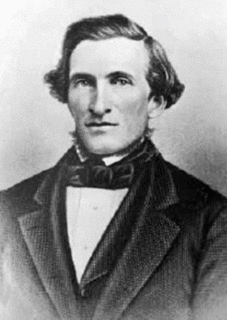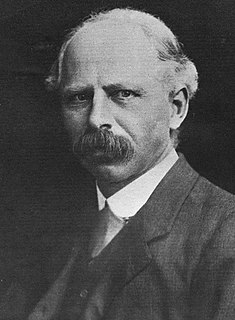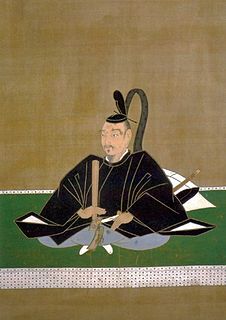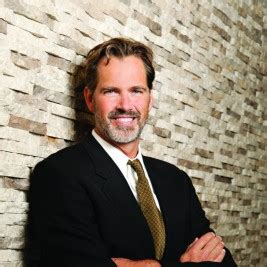A Quote by Henry David Thoreau
I think it will be found that he who speaks with most authority on a given subject is not ignorant of what has been said by his predecessors. He will take his place in a regular order, and substantially add his own knowledge to the knowledge of previous generations.
Related Quotes
A man that advances in spiritual and in temporal matters at the same time, minding to keep the spiritual first, will not let the temporal lead him; he will not place his heart upon his farm, his horses, or any possession that he has. He will place his desires in heaven, and will anchor his hope in that eternal soil; and his temporal affairs will come up as he advances in the knowledge of God.
I think we owe it to children to let them dig their knowledge, of whatever subject, for themselves out of the "fit" book; and this for two reasons: What a child digs for is his own possession; what is poured into his ear, like the idle song of a pleasant singer, floats out as lightly as it came in, and is rarely assimilated. I do not mean to say that the lecture and the oral lesson are without their uses; but these uses are, to give impulse and to order knowledge; and not to convey knowledge.
Knowledge is the parent of knowledge. He who possesses most of the information of his age will not quietly submit to neglect its current acquisitions, but will go on improving as long as means and opportunities offer; while he who finds himself ignorant of most things, is only too apt to shrink from a labour which becomes Herculean.
The organizer of industry who thinks he has 'made' himself and his business has found a whole social system ready to his hand in skilled workers, machinery, a market, peace and order - a vast apparatus and a pervasive atmosphere, the joint creation of millions of men and scores of generations. Take away the whole social factor, and we have not Robinson Crusoe with his salvage from the wreck and his acquired knowledge, but the native savage living on roots, berries and vermin.
Much has been said about Robert, and more will be added. Young men will adopt his gait. Young girls will wear white dresses and mourn his curls. He will be condemned and adored. His excesses damned or romanticized. In the end, truth will be found in his work, the corporeal body of the artist. It will not fall away. Man cannot judge it. For art sings of God, and ultimately belongs to him.
How very seldom do you encounter in the world a man of great abilities, acquirements, experience, who will unmask his mind, unbutton his brains, and pour forth in careless and picturesque phrase all the results of his studies and observation; his knowledge of men, books, and nature. On the contrary, if a man has by any chance an original idea, he hoards it as if it were old gold; and rather avoids the subject with which he is most conversant, from fear that you may appropriate his best thoughts.
Man's mind is his basic tool of survival. Life is given to him, survival is not. His body is given to him, its sustenance is not. His mind is given to him, its content is not. To remain alive, he must act, and before he can act he must know the nature and purpose of his action. He cannot obtain his food without a knowledge of food and of the way to obtain it. He cannot dig a ditch-or build a cyclotron-without a knowledge of his aim and of the means to achieve it. To remain alive, he must think
A man who has been born into the house of a warrior and yet places no loyalty in his heart and thinks only of the fortune of his position will be flattering on the surface and construct schemes in his heart, will forsake righteousness and not reflect on his shame, and will stain the warrior's name of his household to later generations. This is truly regrettable.
The child is naturally meditative. He is a sort of samadhi; he's coming out of the womb of existence. His life river is yset absolutely fresh, just from the source. He knows the truth, but he does not know that he knows.... His knowledge is not yet aware. It is innocent. It is simply there, as a matter of fact. And he is not separate from his knowledge; he is his knowledge. He has not mind, he has simple being.
Therefore only through education does one come to be dissatisfied with his own knowledge, and only through teaching others does one come to realize the uncomfortable inadequacy of his knowledge. Being dissatisfied with his own knowledge, one then realizes that the trouble lies with himself, and realizing the uncomfortable inadequacy of his knowledger.
Let no one imagine that he will lose anything of human dignity by this voluntary sell-out of his all to his God. He does not by this degrade himself as a man; rather he finds his right place of high honor as one made in the image of his Creator. His deep disgrace lay in his moral derangement, his unnatural usurpation of the place of God. His honor will be proved by restoring again that stolen throne. In exalting God over all, he finds his own highest honor upheld.
Take a Nicodemus and put a Joseph Smith's spirit in him, and what do you have? Take a Da Vinci or a Michelangelo or a Shakespeare and give him a total knowledge of the plan of salvation of God and personal revelation and cleanse him and take a look at the statues he will carve and the murals he will paint and the masterpieves he will produce. Take a handel with his purposeful effort, his superb talent, his earnest desire to properly depict the story, and give him inward vision of the whole true story and revelation, and what a master you will have!



































